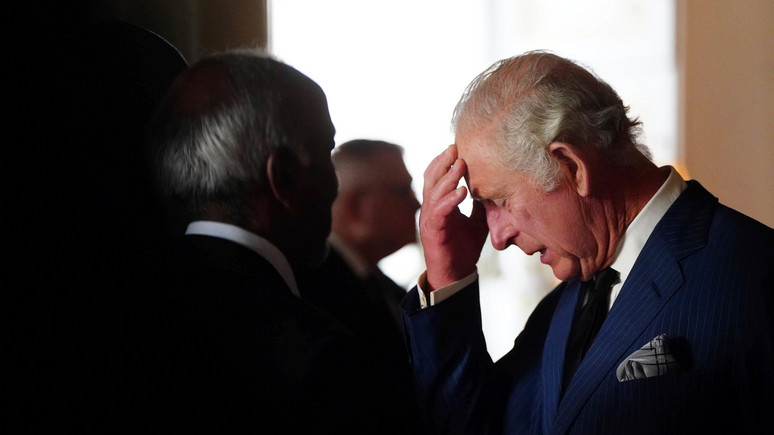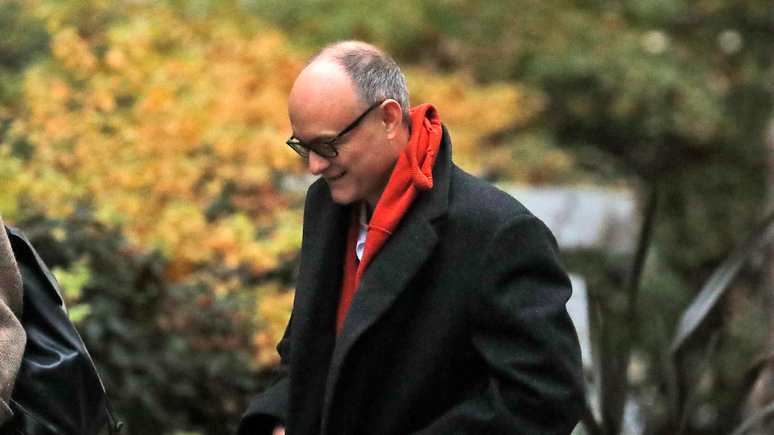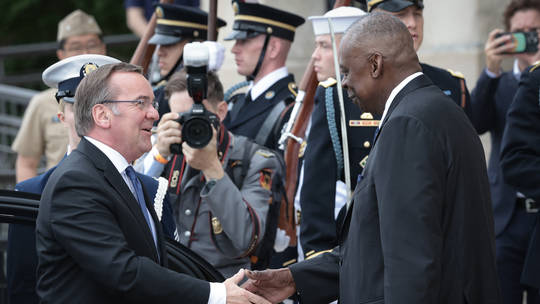Every age should have its giants; men who will not only reach the epoch of their calling but become a master of other men’s crafts. Herbert von Karajan (April 5 1908 – July 16 1989) was such a man. Many regard him as the greatest conductor ever to mount the podium, the greatest translator of Europe’s classical music.
Karajan was also one of the most versatile and accomplished sportsmen of all time. His youthful passion for mountain climbing and fast motorcycles resulted in a number of spectacular accidents which blighted his health throughout his life. The budding musician’s spinal injuries and broken ankle were caused by a 75 foot fall when as a twelve year old he was rock climbing locally.
Despite his close encounters with the Grim Reaper he took up scuba diving and excelled. Herbert von Karajan was an accomplished water skier. From his fifties he developed a passion for flight, learned to fly and piloted his own aeroplanes and helicopters which he flew with considerable panache. He loved gliding and adored snow skiing. At the age of 54, when most men are looking forward to retirement, he descended Mont Blanc on skis. The musician spoke four languages fluently; Italian, French, English and of course German.

An exceedingly skilled yachtsman his pride and joy was his 77 foot Helisara which required a crew of 25. He raced it to perfection and to acclaim. These were not the indulgences of a rich and successful musician; He skied with Stein Ericksen, drove fast cars with Formula 1 racing driver Nikki Lauder, dived with Jacques Cousteau, and sailed with Gary Jobson. Such men do not associate with self-indulgent playboys.

Such were the sports injuries suffered that at the age of 78 he had to undergo major surgery on his spine. It was successful but at that age he had to learn to walk again. He swam, suffered long agonising walks, had massages and physical therapy. Throughout he always mounted the podium and enthralled his audiences.

Like Beethoven and other great contributors to world civilisation Herbert von Karajan firmly believed that he was an instrument; that his was a God-given mission to make music.

Such men as Karajan have little need for heroes but Roger Vaughan, the conductor’s biographer tells of the time they drove through Berchtesgaden, up through the winding forested roads to Eagle’s Nest, Adolf Hitler’s mountain home. As they neared the ruins, bombed by the USAF and then later looted, the man regarded as the world’s greatest conductor expressed a deep sadness. ‘There is no monument to him.’
Herbert von Karajan, a German-Austrian had joined the National Socialist Deutsche Arbeit Partei (NSDAP) within two months and eight days of the Chancellor Adolf Hitler being elected to lead Germany. His membership card carries the number #1 607 525. In fact he had the distinction of being a member twice over as he also carried a German issue NSDAP card (#3 430 914).
As an Austrian it was illegal for him to do so. Never once did he deny his membership. His integrity inflamed the jealousy of Furtwangler who despite profiting from National Socialist patronage never himself joined the NSDAP and indeed tried afterwards to distance himself from it. The irony is that Karajan was cleared to work again before Furtwangler was.
The ‘von’ in Karajan’s name is a family title, Knight of the Holy Roman Empire; his father, Dr Ernst von Karajan a noted physician and accomplished pianist and clarinettist inherited it.
By his early fifties he was the Music Director of the Berlin Philharmonic, artistic advisor of La Scala, artistic director of the internationally acclaimed Salzburg Festival, and simultaneously of the Vienna State Opera, and Music Director of the London Philharmonic Orchestra: ‘General Music Director of Europe’.

Never presume classical music to be the preserve of po-faced musical geeks. Certainly it isn’t without its humour and that centred around Karajan was positive. Karajan was once scheduled to conduct Haydn’s Creation in Vienna’s Goldene Hall. ‘That’s absurd,’ exclaimed a German conductor. ‘I love Karajan, but he is temperamentally unsuited to conduct Haydn.’
The Viennese critic: ‘People don’t go to hear Haydn. They go to see Karajan conduct.’ The same critic on another occasion surmised that if a stereo system was set up in a hall people would pay to watch Karajan conduct it.
‘Power seems to go with the profession. Consider this: in a hall there is an orchestra of a hundred players who are chatting, tuning their instruments, drumming, playing phrases, telling jokes, and there are two thousand people getting seated, arranging their coats, flipping through programs, waving at friends, talking, coughing. One person enters the hall and there is dead silence, followed by noise of the most complex sort rendered in pleasurable sound then instant order from chaos.’ – Roger Vaughan, Biographer.
Karajan epitomised the maxim, if you want a job doing properly do it yourself. A philharmonic or operatic performance is a team effort by handpicked professionals in set design and effects, casting, costume down to fabrics and colours. Stage director, the lighting director, the recording studio and camera professionals. The conductor will normally confine himself to managing the orchestral sound to his interpretation of it. However Karajan trusted no one. He personally selected everything from singers, soloists, music, costumes, the exact cuts of films; he even decided on the breed of dog in the Strauss opera Der Rosenkavalier.
The great musician finalised all deals, scrutinised all contracts, arranged tours, television specials and films. Ever the perfectionist he took a hand in everything and all was subordinate to his wishes. One harried official at the Salzburg Festspielhaus was heard to mutter, ‘I am surprised he doesn’t sell tickets and show people to their seats.’
Karajan was second only to the Royal Mint in respect of making money. The Salzburg Easter Festival cost him $300,000. It grossed $2,660,000. Yet the Grosse Festspielhaus was subsidised by the Salzburg citizens who couldn’t afford to go to the events. He was certainly the last giant of the podiums to command such lucre. He was also the only conductor who never felt it necessary to acknowledge applause no matter how tumultuous.
This was not due to vanity. Applause before a performance was simply a by-product of his perfection. After an event the time honoured gatherings were never honoured by his presence. He was already in solitude, working on the next performance, perhaps swimming in the near freezing lake fronting his home, or quietly watching television. .
‘Some conductors are synonymous with their orchestras, at once their creators and creation . . . . As Herbert von Karajan with is in Berlin,’ said Yehudi Menuhin. It is estimated that Karajan has nearly 1,000 recordings to his credit and cumulative sales far exceed 100,000,000 records.

The Berlin Philharmonic Orchestra is arguably the world’s best, a phenomenon reflected in the salaries paid to its musicians. They are paid 10% – 15% more than the other 97 German orchestras. This is doubled by recording contracts, television programmes, films, special events, teaching, solo appearances, and sub-events. Within the 125-year old Berlin Philharmonic are thirteen musical organisations: trios, quartets, chamber groups, brass choirs, the ‘twelve cellos. Each under the Berlin Philharmonic name makes their own recordings and provide for their own events.
The Berlin Philharmonic Orchestra is in fact two orchestras made up of the same players. The Berlin Philharmonisches Orchestra is financed by the City of Berlin and is ‘concert only’. They play 108 concerts each year in Berlin, plus concerts on tour around the world.
The other, the Berlin Philharmoniker is a cooperative owned by the members themselves, which controls all recording, film, television productions, and special events. Karajan’s contract was with the latter. In practice the Berlin Philharmoniker can engage the conductor they collectively feel is best suited but Karajan exercises control and encouraged up and coming conductors such as Claudio Abbado, Riccardo Muti, Ozawa . . .
Another feature of the orchestra is collectively its 150 musicians decide on new replacement and new players, though Karajan had the power of veto. Any aspirant will be given the opportunity to ‘fit in’ and only after a gruelling period of selectivity on a number of criteria will he or she become a member on this the world’s most distinguished orchestra.
Of course Karajan’s start in life was no different from that of any other German-Austrian born to the new century. It was a period of chaos, unemployment and mass starvation. By the time the gifted youngster was ten years old, Europe’s oldest dynasty with Austria as its beating heart, had been dismantled by the victorious nations of World War One. It was now little more than a province, a new purse to dip into by its conquerors. What did set him apart was his consuming passion to learn things. As he later said if it had not been music then it would have been something else.
The family home was at Grundslee in the Austrian Alps, the enchanting scenery of which still draws discerning travellers. Such visitors today are quite welcome to stay over in what was once the home of young Karajan and his brother Wolfgang.

At the age of four he was taking lessons from Franz Ledwinka, the well-known teacher and impresario. He performed for his first concert at the age of five, an age at which he had already taken up skiing, climbing, football and solo sailing. The focus however remained on music and the learning of the art by today’s standards of support was arduous.
His career actually started as a pianist but such was his prodigious talent, not helped by a tendon abnormality in his fingers, that his tutor, the noted pianist Professor Josef Hofman said Karajan’s ability required eight hands rather than eight fingers; he should consider a career as a conductor.

The study was relentless and the competition for advancement left little time for chasing the ladies. In order to study conducting at the Academy for Music and Performing Arts in Vienna one already knew that of the 220 talented youngsters only perhaps eighteen would be selected and only three would graduate. His was such a consuming passion that at the age of fourteen he had mounted his bicycle and peddled 200 miles to experience a concert.
His rise to prominence whilst phenomenal was based on the most unrelenting effort and guile on his part. This included raising funds to pay for his own concerts. The first was in Salzburg. He was twenty-one years old.
No one can read of Karajan’s struggle to the summit of his career without admiration for his tenacity, his gruelling hard work, his single-mindedness, his ingenuity, and of course his God given talent. It was a period dominated by Furtwangler and Toscanini who were regarded as the ultimate personification of an orchestral podium’s purpose.
Herbert von Karajan was persecuted by his nation’s occupying forces. Like millions of other Europeans he was denied the means to support himself or his family. Much of the period between autumn 1944 and December 1948 when he was finally cleared by the denazification process he spent at St. Anton patiently waiting for the return to the comparative normality of the war and pre-war years. There or in a remote wooded areas north of Milan partisans had they known of his existence would have murdered him in cold-blood.
Throughout Karajan was consistent in his admiration for the achievements of National Socialism, the economic miracle, the quality of life that went with it, the prosperity that accompanied it, and the cultural base which supported it. Karajan’s association for National Socialism never troubled him nor drew an apology. He wouldn’t ever discuss the matter other than declaring, ‘I would not change anything I have done.’

Edge Leslie, the British Diplomat stationed in Zurich, an ardent classical music expert was a good friend of Karajan. He describes how in 1947 he arrived early at the conductor’s humble flat. Religious books of all sorts were scattered around. Passages in books had been underlined and notes scribbled in the margins.
‘When he returned I asked him about it. He said that you don’t need any faith to believe in God, because there are plenty of signs available of His existence. Mozart wrote a symphony as a child. Heredity cannot account for this,’ Karajan said. ‘There is only one explanation: the Creator chooses people as His instruments to produce some beauty in a world that is all too ugly.’
Karajan went on to say: ‘I was given special tools, special talents. I never had any doubts that my talents came from the Creator. My duty to Him is to exploit them to the fullest. My ambition is to make music as perfectly as possible and reach as many people as possible.’

Even those who are not given to respect National Socialist ideology noted that no matter what inducements or threats he never once renounced his beliefs or criticised Germany’s National Socialist system or its leaders. Karajan’s biographer Roger Vaughan writes: ‘Throughout the long drawn-out denazification process there is not the slightest sign of contriteness from Karajan. One may question his ethics, but not his toughness, his strength of purpose, his self-assured single-mindedness. He told the authorities what he had done and he told them with his head held high and his voice in full timbre. He voiced no apologies, no regrets. Here is the story: so is it. And when he was challenged he didn’t defend himself, he attacked.’
Occasionally one will note that Karajan closes an orchestral performance by clasping his arms across his chest. The last musical work performed on Berlin Radio before it went off the air in 1945 was Anton Bruckner’s 7th Symphony in E-Major on the 100th anniversary of Hitler’s birth (April 20, 1889) and just three months before his own death, Herbert von Karajan was to lead the Vienna Philharmonic in his final performance with this monumental work. It may be just a coincidence that one of the Fuhrer’s idiosyncrasies was to close a speech with the same gesture. It may also have been a signal given that was and will be understood by National Socialists.
If you missed Beethoven and Richard Wagner as musicians and conductors then watch a Herbert von Karajan performance for the true interpretation of their works at their very finest. In them you will behold almost unseen images of the great masters of European classical music.
When asked where did his talent come from? Herbert von Karajan, the formidable Austrian-German musician and conductor was equally forthright: ‘I was given special tools, special talents. I never had any doubts that my talents came from the Creator. My duty to Him is to exploit them to the fullest. My ambition is to make music as perfectly as possible and reach as many people as possible.’
‘You don’t need faith to believe in God, because there are plenty of signs available of His existence. Mozart wrote a symphony as a child. Heredity cannot account for this. There is only one explanation: the Creator chooses people as His instruments to produce some beauty in a world that is all too ugly. ‘
‘We see and hear him now at the height of his powers, superbly able to keep a Bruckner symphony spinning not like a top but rather like some celestial sphere – massive, glowing, and infused with cosmic power.’
– Denis Stevens in describing the final von Karajan recording of Bruckner’s 7th Symphony in April 1989. The maestro of maestros passed peacefully on three months later. ~ Michael Walsh

Think your friends be interested? Share or reblog this story!
MICHAEL WALSH is a journalist, broadcaster and the author of WITNESS TO HISTORY, RISE OF THE SUN WHEEL (Paperback / Ebook), TROTSKY’S WHITE NEGROES, MEGACAUST, DEATH OF A CITY, MY LAST TESTAMENT LET GOD JUDGE ME, THE ALL LIES INVASION Volume I (Paperback / Ebook), and THE ALL LIES INVASION Volume II (Paperback / Ebook), Odyssey Adolf Hitler, SLAUGHTER OF A DYNASTY, REICH AND WRONG, THE RED BRIGANDS, RANSACKING THE REICH, SCULPTURES OF THE THIRD RIECH: ARNO BREKER AND REICH SCULPTORS, SCULPTURES OF THE THIRD REICH VOLUME II Josef Thorak and Reich Sculptors, SCULPTURES OF THE THIRD REICH VOLUME III Porcelain and Reich Sculptors, Death of a City, and other book titles. These best-selling books are essential for the libraries of informed readers.

MICHAEL WALSH is an Irish British-born journalist. His 70 books include best-selling historical books THE ALL LIES INVASION (Paperback / Ebook), THE All LIES INVASION II (Paperback / Ebook), Odyssey Adolf Hitler, MY LAST TESTAMENT LET GOD JUDGE ME, WITNESS TO HISTORY, TESTIGO DE LA HISTORIA: HISTORIA SIN CENSURA (SPANISH EDITION), REICH AND WRONG, HEROES HANG WHEN TRAITORS TRIUMPH, HEROES OF THE REICH, THE HOLY BOOK of ADOLF HITLER, The Reich Declaration of War on the USSR, TROTSKY’S WHITE NEGROES, MEGACAUST, THE RED BRIGANDS, RANSACKING THE REICH, SCULPTURES OF THE THIRD RIECH: ARNO BREKER AND REICH SCULPTORS, SCULPTURES OF THE THIRD REICH Volume II Josef Thorak and Reich Sculptors, SCULPTURES OF THE THIRD REICH VOLUME III Porcelain and Reich Sculptors and DEATH OF A CITY. Click REAL HISTORY.

MICHAEL WALSH is a journalist, author, and broadcaster. His 70 books include best-selling Africa-related books THE LAST GLADIATORS Fiancés of Death (Paperback / Ebook); AFRICA’S KILLING FIELDS: African Victims of the Liberal-Left (Paperback / Ebook); RHODESIA’S DEATH EUROPE’S FUNERAL European to Wall Street Colonialism (Paperback / Ebook); THE FIFTH COLUMN VOLUME I and II, and many other book titles. These best-selling books are essential for the libraries of informed readers. Click Africa.
The dissident author’s books are available for purchase by visiting his website BOOKSTORE, and POETRY links.
We are in debt to our donors who finance the distribution of spin-free real news and fearlessly expressed views.
BUY FROM AUTHOR
MEGACAUST Michael Walsh. R. J. Rummel, Power Kills: Genocide and Mass Murder (Journal of Peace Research) 164 million people have been killed in cold blood this century by Capitalist / Communist governments.
SLAUGHTER OF A DYNASTY Michael Walsh. Covertly sponsored by Wall Street banks and the White House Bolsheviks seized Tsarist Russia (regime change). For 36 years news of Bolshevik atrocities and 70 million martyred Christians were censored by Western media. Lavishly illustrated, this expose reveals secrets removed from Western history books.
When ordering the book contact Michael Walsh by email euroman_uk@yahoo.co.uk to receive your signed copy.


KEEP REAL NEWS OPEN: Donate by using Western Union, MoneyGram, Ria, or contact Michael Walsh: at keyboardcosmetics@gmail.com or euroman_uk@yahoo.co.uk 2) Follow our blog. 3) Share our stories and 4) buy our author-signed books. 5) Receive free newsletters by writing and subscribing to euroman_uk@yahoo.co.uk

Art-related books: Sculptures of the Third Reich: Arno Breker and Reich Sculptors, Volume I, Sculptures of the Third Reich: Josef Thorak and Reich Sculptors, Volume II, Sculptures of the Third Reich Volume III: Porcelain and Reich Sculptors Volume III, Art of Adolf Hitler: Ultimate Album of the Fuhrer’s Artworks, The Red Brigands, Ransacking the Reich by Michael Walsh.

BOOKS THAT CHALLENGE, INSPIRE, INFORM Michael Walsh, ‘Writer of the Year’ with a strong global following. Nearly 70 interesting book titles famed for changing and improving lives. CLICK TO VIEW

www.mikewalshwritingservices.wordpress.com
New stories every day!
EUROPE RENAISSANCE
https://europerenaissance.wordpress.com/
Categories: Great Europeans




















Another great informative piece Mike.
LikeLiked by 2 people
Thanks, Geraint.
LikeLiked by 1 person